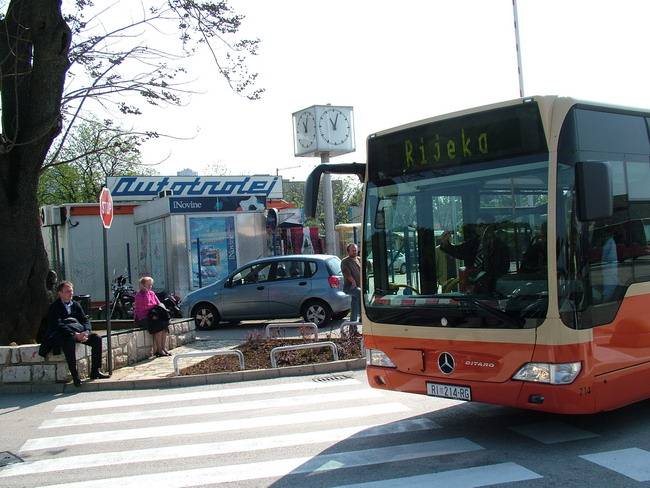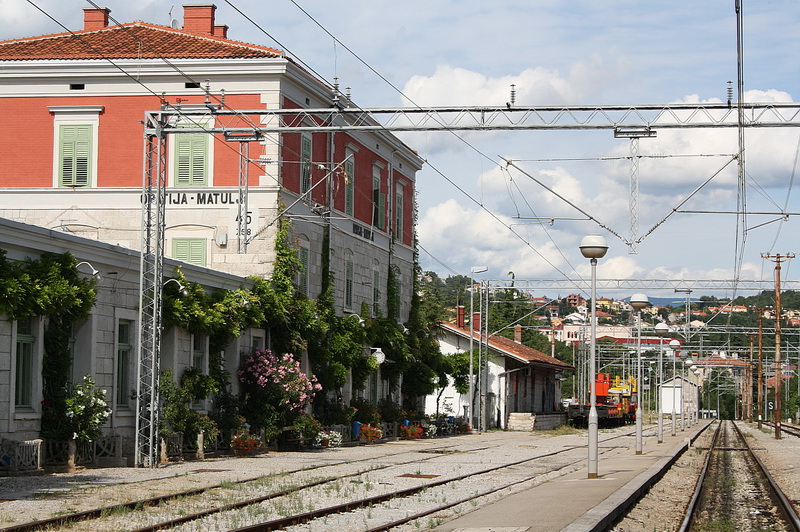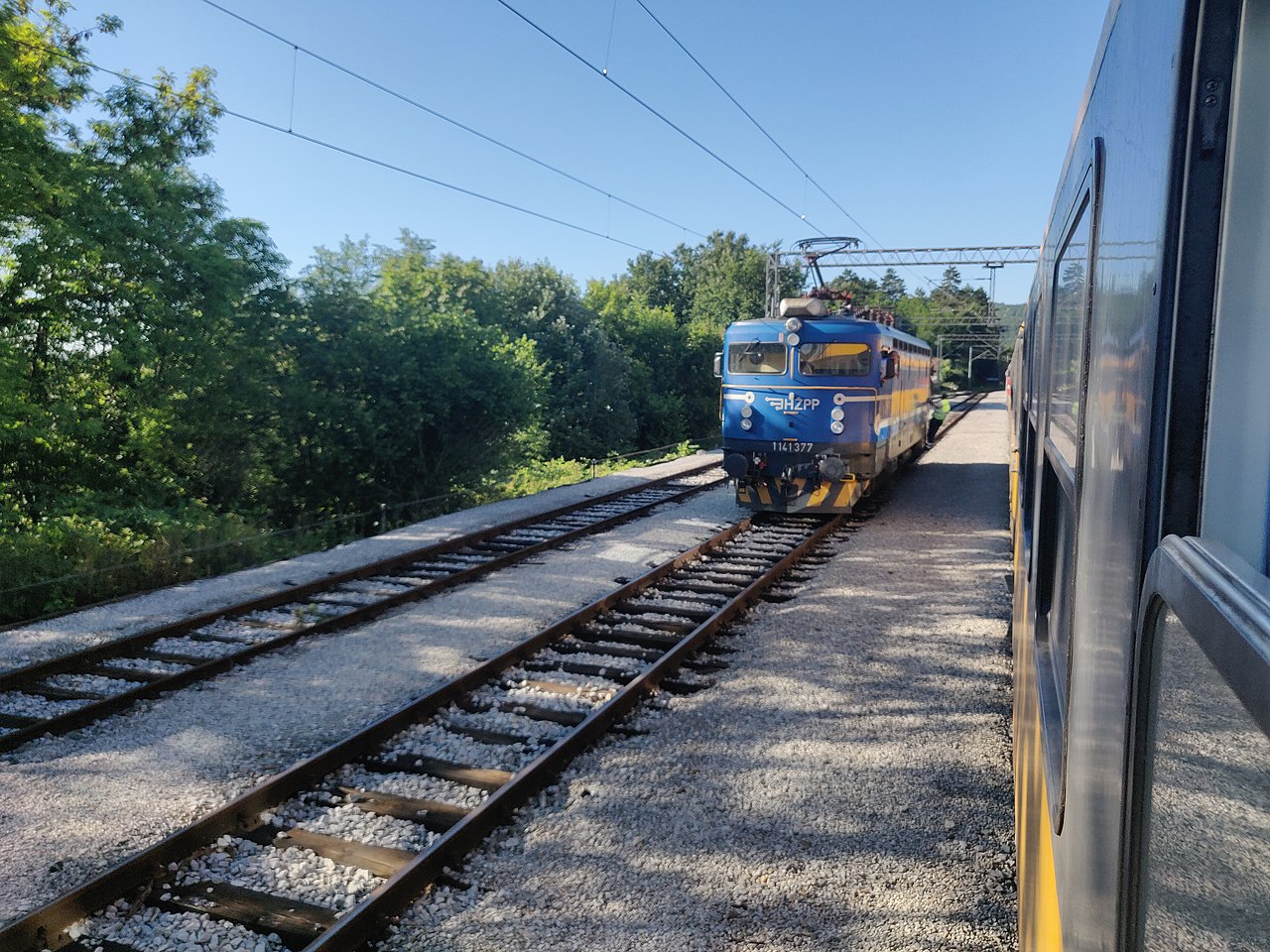Sisak-Moslavina County Project to Boost Public Transport Offer
April the 5th, 2023 - One large Sisak-Moslavina County project is set to boost the public transport offer in that county, which is a bit of good news for this particular part of Croatia after the devastating earthquakes of 2020, from which it still hasn't recovered.
As Poslovni Dnevnik writes, at the recently held presentation of the "County transport for all" project in Sisak, Transport Minister Oleg Butkovic and Sisak-Moslavina Prefect Ivan Celjak signed the first contract on the co-financing of public passenger road transport services, which will provide local people with safe and acceptable public transport.
Butkovic arrived on a working visit to Sisak and Petrinja with the Vice-Presidents of the Government Branko Bacic and Tomo Medved, and apart from the aforementioned, they also got better acquainted with all of the details of the construction of the section of the A11 highway from Lekenik to Sisak, including the access road to the city, and the modernisation of various streets and locations.
Butkovic pointed out that this is a big event for Sisak-Moslavina County and for the ministry itself because it is the first such project that will provide safe and acceptable transportation to all students, employees and other people.
"60 million euros have been secured for this transport project, and the value of the signed contract itself stands at 2.5 million euros. At a time when many bus lines are being terminated because the carriers have no economic justification to maintain them, many people have become wary and dissatisfied, especially those living in more rural areas. With the implementation of this project, smaller, more rural places will be properly connected to larger centres,'' he said.
Butkovic added that this is the third attempt at this project in Sisak-Moslavina County, and he invited other counties across the rest of the country to implement the same. He pointed out that there is greater interest in the project in central Croatia but still invited the counties of southern Croatia to get involved.
The project covers the next two years, and the ministry recently signed a contract for the purchase of new buses. That's why Butkovic is currently actively calling on carriers to renew their fleet(s).
For more, make sure to check out our dedicated news section.
Croatian Bus Carriers in Trouble Once Again: State Must Intervene
January the 23rd, 2022 - Croatian bus carriers are facing serious issues once again after being severely damaged by the global coronavirus crisis, restrictions placed on travel and a lack of state aid.
As Poslovni Dnevnik writes, due to the spread of coronavirus and the large increase in the number of people infected with it, an increasing number of schools across the Republic of Croatia are switching to distance learning (the so-called Model C), which puts Croatian bus carriers in an awkward position with major problems with their student transport contracts. This came as a warning from the Croatian Employers' Association (HUP), which pointed out the illogicality and non-functioning of contracts for the bus transport of students.
HUP explained that many Croatian bus carriers have contracted the transport of students for 180 days per year, but due to the closure of schools in some areas they were left without what was contracted and lost all of the income that was promised with it.
"We understand the reasons why schools switched to distance learning, but for us it means that the buses run empty or are forced to stop running completely. Of course, fixed costs such as utilities, fuel, leasing and the payment of wages to workers and drivers remain the same every month, regardless of which model the school we drive for decides to operate with. That's why it is fair to recognise that there is 'force majeure' in these contracts and to pay carriers at least the cost of a cold drive worth 50 percent of the agreed amount during which students have distance learning,'' said Damir Pavlovic from HUP, adding that otherwise the so-called model A will not mean the return of students to schools because there will be no one to transport them when the epidemiological situation finally does calm down.
''Most Croatian bus carriers won’t be able to cope with this''
HUP also made sure to note that the criteria and the way of co-financing the costs of public transport for the country's high school students are based on a government decision from back in 2018, long before the pandemic struck, where the calculation was based on the price of ordinary Eurodiesel, which then amounted to 8.37 kuna. Today, the prices of basic Eurodiesel start at a significantly higher 11.29 kuna, which is an increase of 35 percent, and fuel is a key input cost that largely defines the business of Croatian bus carriers.
"Due to the coronavirus crisis, bus transport is one of the most endangered industries because any spread of the infection reduces the number of regular passengers we transport. The epidemic has obviously entered its critical phase and we're asking the state to please try to adapt to these new circumstances. If we don't recognise the costs of cold storage for student transport and if we don't introduce the appropriate measures to preserve jobs, everything that has been done well so far will mean nothing, and take down the vast majority of bus operators who won't be able to withstand this pressure with it,'' concluded Pavlovic.
For more, check out our dedicated business section.
Croatian Bus Companies Still Facing Issues, Ticket Prices to Increase
October the 10th, 2021 - Croatian bus companies have been experiencing major issues for a long time now, and things have been made exponentially worse by the ongoing coronavirus pandemic. It seems that ticket prices are set to go up and some very important services could well be lost in the wake of the continued problems hampering this industry.
As Poslovni Dnevnik writes, the a group of bus line carriers which belong to the Croatian Employers' Association (HUP) has asked the Croatian Government to issue an identical conclusion that was recently obtained by the construction sector.
Namely, the Government pointed out in its explanation that the prices of certain raw materials used in the construction sector increased in price enormously, heading well into the double digits, and has made moves to make things easier on this enfeebled sector. The Croatian Employers' Association has naturally welcomed the Government's help in this matter, but has also pointed out that similar problems exist in other sectors - primarily those whose operations depend exclusively on the price of energy, which has exploded in recent weeks. For example, Eurodiesel prices are currently above eleven kuna.
Hrvoje Mestrovic, who is the president of the aforementioned group of individuals from within this Association, pointed out that Croatian bus companies will be forced to increase the prices of their services and their tickets, but the problem of already signed contracts for student transport remains a potentially enormous issue.
''When it comes to passenger transport, the key input is the cost of fuel and that is something which has really exploded, with predictions of even further growth. Croatian bus companies will soon not even be able to provide student transportation services they've previously agreed to undetake,'' said Mestrovic.
Many companies operating within this particular industry feel well and truly ignored by the Croatian Government and this is far from the first time they've felt that way. It seems that as issues continue and recovery is made more difficult, the situation isn't about to improve any time soon.
For more, check out our business section.
Kvarner Goes Green: Opatija and Rijeka Integrated Rail and Bus
January 7, 2021 – From the Bay of Bakar through the beaches of Rijeka to the opulence of Opatija and up, all the way to the border with Slovenia, Kvarner residents and visitors will be able to travel with just one ticket across the whole of the Rijeka integrated rail and bus network
An existing co-operation between rail and bus operators in Kvarner was today extended, allowing the Rijeka Integrated Rail and Bus network to continue for at least another year. This holds exciting implications for travel in the region for years to come.
Planned changes to the infrastructure of the coastal part of the north Kvarner Bay mean that within the Rijeka integrated rail and bus scheme, you will soon be able to travel from the Bay of Bakar, stop off at a series of Rijeka beaches, hop back on public transport to go to Opatija and even travel beyond the coast, all the way to the border with Slovenia, using just one ticket. Passengers will not be limited in their choice to travel by either aril or bus.
An Autotrolej bus, longtime providers of local bus services in Rijeka © Grad Rijeka
The Rijeka integrated rail and bus scheme, organised through Kvarner County, Rijeka, Matulji and Bakar Town Halls, rail and local bus operators is an eco-friendly drive that seeks to encourage people to leave their cars at home and instead choose public transport. However, access to the Rijeka integrated rail and bus network is not limited to commuting workers and travelling students. Although the scheme is most cost-effective using a monthly ticket, day tickets are available for the network which may be of huge appeal to visitors wishing to explore a wider portion of Kvarner's northern coast.
The train station of Opatija Matulji © Damir Covic 1939 / Matulji Tourist Board
Rijeka integrated rail and bus: International
What makes the extension of the Rijeka integrated rail and bus scheme even more welcome is the planned overhaul of infrastructure that will accompany it.
Fifteen extra stations will be added (or reactivated) on the route between Kantrida in the west of Rijeka, along the Rijeka seafront and on to the outskirts of Bakar. Furthermore, the entire train line from Bakar to Šapjane will be brought into the Rijeka integrated rail and bus scheme with the completion of a second train track along the route. Trains along the line at Šapjane. Next stop Slovenia! © DiningCar_
Trains along the line at Šapjane. Next stop Slovenia! © DiningCar_
Šapjane, in the municipality of Matulji, lies 20 kilometres inland, north of Opatija. It sits right on the border with Slovenia. The train line extends across this border, through the Slovenian town of Ilirska Bistrica, and then on to Postojna and Ljubljana, Italy or Austria. This means the Rijeka integrated rail and bus scheme will be directly linked to another green, international travel network.
These routes will all be linked to the incoming, double-tracked Pan-European fast train network, which, as TCN highlighted last year, will connect this part of Kvarner with France, Spain and Portugal in the west all the way to eastern Hungary via Zagreb and Budapest. Needless to say, it will require more than a single day ticket (cvikalica) from the Rijeka integrated rail and bus network to make such a journey!
Without Solid State Guarantees, Croatian Bus Companies Fear for Future
As Novac/Dora Koretic writes on the 8th of May, 2020, private Croatian bus companies operating on intercity and inter-county lines are among those who aren't placing too much hope in the announced normalisation of traffic connections, given that, as they confirmed to Jutarnji list, there is no one to compensate for their losses.
The president of the Association of Croatian Public Bus Operators, Hrvoje Mestrovic, estimated that private Croatian bus companies will put a maximum of ten percent of their capacity into operation from Monday, and it is questionable whether it will prove economically viable.
The problem, Mestrovic continues, dates back to November 2019, which, he claims, was the deadline for the state to sign public service contracts with private Croatian bus companies/carriers. That particular document would have assumed that the state would compensate them for losses on unprofitable lines.
''We've been warning [them] since last year that the legally prescribed deadline for signing these contracts has expired, but the state has decided to ignore it and thus actually discriminate against private Croatian bus companies. State transport companies, such as Croatian Railways, Croatia Airlines, as well as local ones, have all signed contracts with the state and a state guarantee that they will subsidise lines that aren't profitable has been given to them, only private bus carriers, which also perform a public function, haven't been granted such a right,'' Mestrovic stated angrily.
This was confirmed by the President of the Management Board of the Ariva Group, Drazen Divjak, whose company will put about ten percent of its capacity, and only the most frequent lines, into function as of Monday.
''We'll drive from Zagreb to Rijeka, Osijek, Zadar and Split, as well as on other frequent routes, but we'll have to see during the week just how the situation will develop and how much sense it will actually make. We don’t expect crowds, people don’t have the need to travel right now and I’m afraid I don’t see any solution to this. We're a company with 1300 employees, and if the situation doesn't improve, it will be difficult to endure it all, saod Divjak.
Apart from the fact that not too many people are expected on the roads, those who are will be subjected to strict epidemiological measures which mean that only every other seat in the bus will be able to be filled, and passengers will have to be provided with access to disinfectants and the vehicles themselves will need to be regularly cleaned and disinfected.
Given that no influx of passengers is expected, Croatian bus companies believe that the epidemiological measures will succeed, but they doubt that any real economic logic is being realised at all.
''We're going to be driving in a very reduced form. We're currently negotiating with cities and counties to get some estimates of which lines passengers are expected to use, but at the moment no one can know for sure. The big problem for us is the fact that we haven't signed [the aforementioned] contracts with the state,'' said the President of the Management Board of the popular Cazmatrans, Dragan Marinovic.
According to Mestrovic, the biggest shortage will be experienced by private Croatian bus companies due to the lack of students who normally make up 30 to 40 percent of passengers using them, then by workers who usually make up 15 percent of the capacities, and it is difficult to count on retired passengers currently.
''The state has obviously decided to discriminate against some passengers. Namely, those who live near the railway were provided with subsidised transport, and those who depend on buses were left to just try to manage on their own, to fend for themselves,'' Mestrovic continued.
What will domestic lines be doing as of Monday?
The Croatian national airline Croatia Airlines, which has already been enfeebled by numerous problems in the pre-coronavirus era and really didn't need further issues, announced its flight plans from May the 11th a week ago.
As of Monday, domestic lines will be partially established again, on the route Zagreb - Split - Zagreb and Zagreb - Dubrovnik - Zagreb twice a day, in the morning and in the evening, and of the international lines - only the one that operated even in the most restrictive conditions will remain in operation. The one which travels from Zagreb - Frankfurt - Zagreb, and only once a day.
On all flights for passengers, there will be an obligation to use masks or face covers, and they will have to be used during the entire stay in the cabin.
According to the information published by the company HZ Putnicki prijevoz late yesterday afternoon, almost all lines in domestic railway traffic will be re-established from Monday, except for a small part of the trains that will temporarily not run. International trains are still not in operation.
When it comes to domestic lines and connections, HZ Putnicki prijevoz will put 642 trains into operation on weekdays, 379 on Saturdays, and 288 trains on Sundays and other non-working days.
What will be running as of next Monday?
Rail:
- Almost all lines
- 642 trains on weekdays
- 379 trains on Saturdays
- 288 trains on Sundays and public holidays
Air traffic:
- Route Zagreb - Split - Zagreb
- Route Zagreb - Dubrovnik - Zagreb
Buses:
- A smaller number of lines
For more, follow our travel page.
Croatian FlixBus Fleet Grows to Over 40 Buses in 8 Months
FlixBus currently connects Croatian cities with over 500 destinations throughout Europe.


